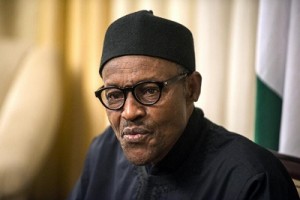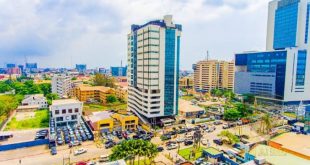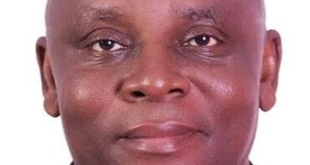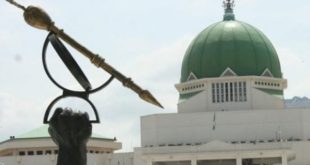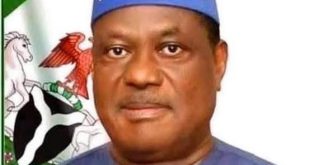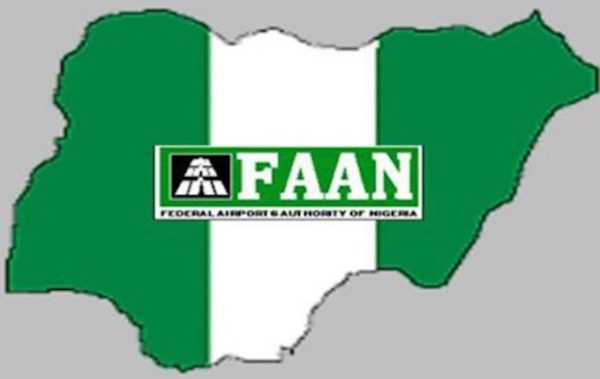The expression “things fall apart” has been popularized since Africa’s literary giant and master storyteller Chinua Achebe published his first and most sought-after book titled, “things fall apart” in 1958.
Achebe had mirrored his Igbo society, specifically at a period when the white man broke into it as missionary and administrator. In this famous story, the awareness of things falling apart is located by Obierika (Okonkwo’s friend) in his accusation of the white man:
“Now he has won our brothers and our clan no longer acts like one. He has put a knife on the thing that held us together and we have fallen apart”

This is the same situation that President Buhari is threatening to evoke in Nigeria by flouting the rule of law as he disregards court-ordered bail for the former National Security Adviser, Rtd Col. Sambo Dasuki as well as withholding the leader of the Indigenous People of Biafra (IPOB) and Director of Radio Biafra, Nnamdi Kanu who was granted unconditional bail by a federal high court in Abuja.
The rule of law is what keeps a multifaceted country like Nigeria from falling apart despite the grievances and bitterness occasioned by the perceived marginalization of several sections of the nation. The decision of the President to keep these men in custody despite the court rulings to grant them bail is a blatant disrespect to the nation and its rule of law, especially as it emanates from the number citizen of the country.

The situation was further exacerbated during the President’s recent media chat where he openly pronounced Kanu and Dansuki who are facing trial as guilty and sanctioned their continued incarceration despite being granted bail by the courts.

Nevertheless, the rule of law is so invaluable because it limits arbitrary use of power by those in authority and this flagrant disregard for law and public service has become a characteristic that is very prominent among some Chief Executive Officers of Maritime Intuitions and parastatals in Nigeria today. The trend is that when these maritime helmsmen conclude their tenure or when they are removed, they end up in the cells of the Economic and Financial Crimes Commission (EFCC) or in the court to clear their names over charges of abuse of office and corruption.
As a result of this uncharacteristic approach to issues by the president and several CEOs and administrators in various institutions in the country today, there is a dire need to mirror who an ideal CEO/ Administrator should be. A Chief Executive Officer should be a first-class administrator who functions as a coach and not as a dictator. He should be easily accessible to his staff and always engage his managerial team. He should be transparent and possess an administrative skill which ensures the existence of cordial official and personal relationships with his management team as well as the rank and file of the organization. He should not only be willing to admit when he is wrong or that doesn’t have the answer to a problem but also be humble enough to figure out where to go or whom to go to get the right answers from.
Another issue plaguing CEOs today is handling funds allocated or generated by their organizations. In a recent chat with the Chairman Ports Consultative Council, Otunba Folarin, he explained that public officers ought to see their appointments as an opportunity to serve and respond to the aspirations of the stakeholders in the industry or organization to make significant impact with their positions.
The fact that the former NIMASA helmsman, Patrick Akpobolokemi is currently facing 40 counts charges of fraud and money laundering to the tune of over N35 billion is a shame. The recent visit by the Minister of Transport, Rotimi Amaechi to maritime agencies in Lagos saw the minister reiterate the obvious that NIMASA had suffered from poor management especially under the administration of the erstwhile Director General, Akpobolokemi.
Institutions are only as good as its leadership and the arrowheads should always think of writing their names in the sands of time as CEOs that championed a change, developed a significant initiative and better the lot of its internal and external publics. It is time our CEOs especially those in the maritime give listening ears to the yearnings of the stakeholders in the maritime industry. We expect to see them epitomize positive change and spring up developments in the industry.
President Buhari should recall that he rode to power on the mantra of ‘change’, anti-corruption and respect for the rule of law. He must ditch the few elements of dictatorship from his moral fiber and be a democratic leader with optimum regard for the rule of law.
By Kenneth Jukpor
 MMS PLUS NG – Maritime, Aviation, Business, Oil and Gas News Online Newspaper with coverage in Maritime, Oil and Gas, Aviation, Power and Energy as well as Financial News
MMS PLUS NG – Maritime, Aviation, Business, Oil and Gas News Online Newspaper with coverage in Maritime, Oil and Gas, Aviation, Power and Energy as well as Financial News

